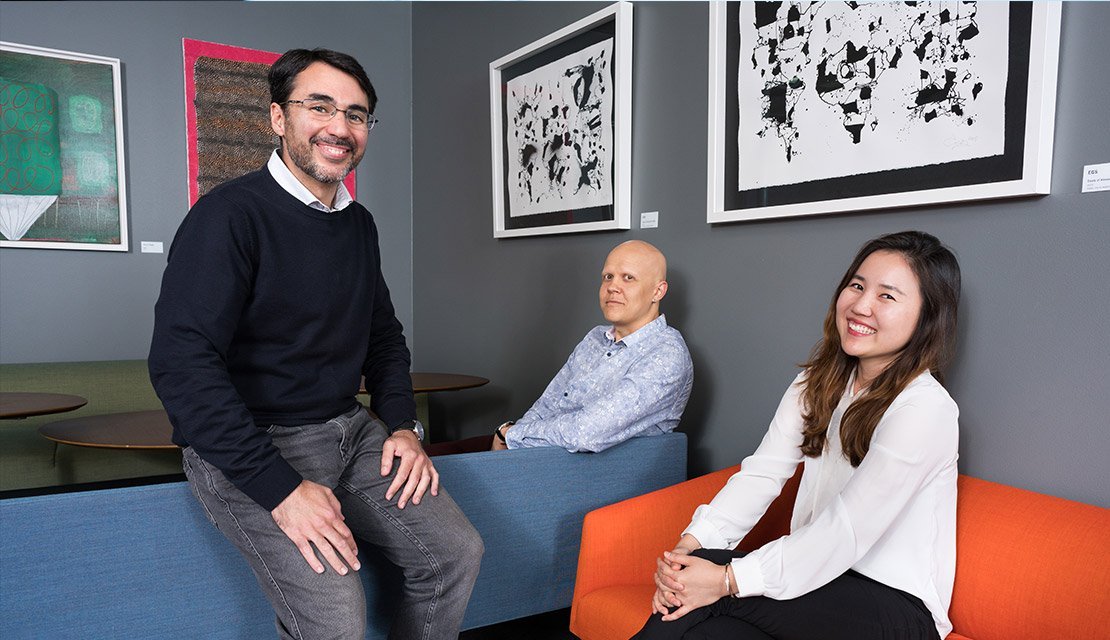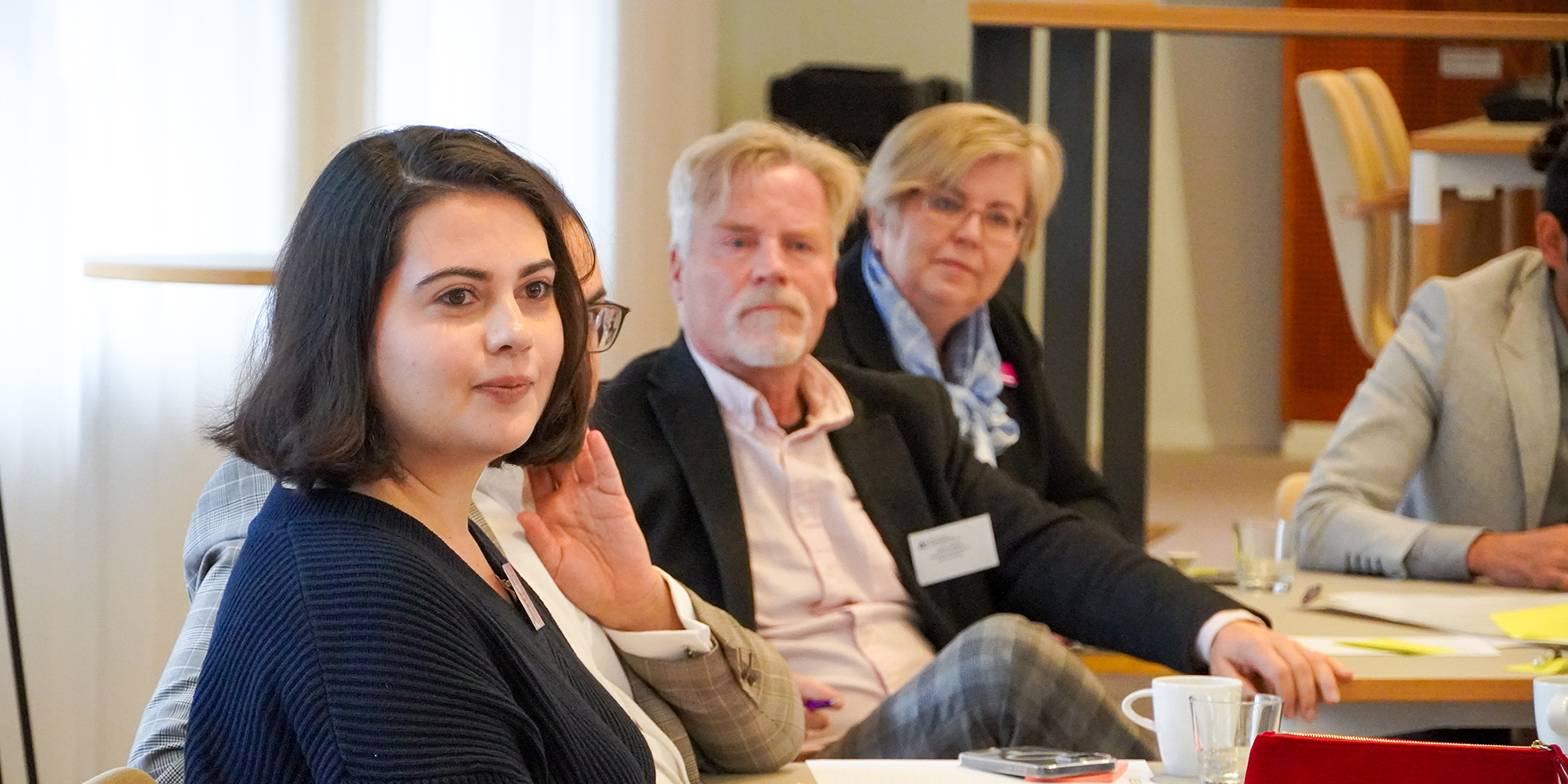To grow, prosper, and expand internationally, companies need talent. In a small country like Finland, relying on domestic talent is not an option, as the number of talented workers needed exceeds that on offer. According to Business Finland and the Ministry of Economic Affairs and Employment, there are already entire industries where talent shortage has put growth at risk.
No wonder, then, that migration and international mobility have become vital for Finland’s competitiveness. This is one of the driving factors behind the Talent Boost government program, launched in 2017. Talent Boost aims to make Finland more attractive to international talent, harness the expertise of international talent already in Finland, and make the Finnish labor market more open, responsive, and attractive to international professionals.
In a small country like Finland, relying on domestic talent is not an option, as the number of talented workers needed exceeds that on offer."
Fernando Guerrero, a biologist with a PhD in molecular biology and biochemistry from the University of Seville, found a new direction for his life through Global Talent F.E.C program. The program is part of the Talent Boost initiative and targeted especially for international talent already living in Finland.
Born in Spain, Guerrero came to Finland in 2010 to do postdoctoral research at the University of Turku. When his Colombian-born wife found work with the telecommunications company Nokia in the capital region, Guerrero applied for another postdoc position at the University of Helsinki. After a few years, however, the lure of the academia was no longer strong enough.
"I wanted to switch to business and was a solopreneur for a couple of years, but that didn't go well and I wasn't making enough money. Job hunting didn't bring results, either," Guerrero says.
Hands-on work experience bolsters career prospects
With over a quarter of a century of experience of labor market education in so-called Further Educated with Companies (F.E.C) programs, Aalto EE is a perfect partner for Talent Boost.
The Global Talent F.E.C program offers an overall understanding of the Finnish business environment."
The Global Talent F.E.C is a six-month, English-language training program, dedicated to helping Finnish organizations employ international talent, utilize the participants' competencies and abilities, and improve their job-seeking abilities.
The program offers an overall understanding of the Finnish business environment and helps the participants recognize and market their expertise in the Finnish labor market. In addition, each participant has a chance to work in a partner company on assigned projects and tasks. Each participant also has a mentor in the company they work for.
For Guerrero, the program was eye-opening. He worked as an R&D Manager for Nolla Antimicrobial, a Helsinki-based biomedical technology company.
"I now have first-hand experience of working for a Finnish company and have a completely different view of what companies here need. All the knowledge that we've absorbed from the lecturers during the program has been valuable, too."
Jimin Jung, originally from Korea, agrees.
At the TE Office, I saw a lot of highly-educated international people who were finding it difficult to find jobs."
"I definitely feel more confident after this experience," says Jung, who has a BS in Marketing from George Mason University in Virginia, USA, and a Global MBA from S P Jain School of Global Management in Singapore, Australia, and Dubai.
Jung ended up in Finland for love: she's married to a Finn. Finding employment in Finland, though, was a more painful affair.
"I came here last year just after I graduated. On a Finnish language course organized by the TE Office, I saw a lot of highly-educated international people who were finding it difficult to find jobs. It was depressing. When the TE Office e-mailed me about this program, I grabbed the opportunity. My priority was developing my career, and I wanted to see how businesses work in Finland."
International workers must show their passion
Thanks to the Global Talent F.E.C, Jung found a match for her marketing skills at Naava, a Finnish health technology company, where she has been working as a Marketing and Communications Manager for the program's duration. But it wasn't handed to her on a plate.
Before the program officially started, the participants had the opportunity to take part in career and job-seeking workshops. Jung attended all sessions and found some companies who were interested in her, but language turned out to be a barrier.
They all empathized but said that it's difficult to work in marketing communications if you don't know Finnish."
"They all empathized but said that it's difficult to work in marketing communications if you don't know Finnish," Jung says.
"Language definitely is a barrier," Guerrero confirms. "Finnish is difficult to learn, and I think companies should make it easier for non-Finnish people to join by using English as their official language," says Guerrero. Nolla uses English as the company's official working language due to its multinational workforce and international aspirations.
Jung's situation changed when she came across a Naava product at a friend's house and fell in love with the brand.
"I googled the company and saw that they're expanding to other countries, including Korea. I strongly felt that I can do something for the company and also for my home country. I had butterflies in my stomach because I was so excited. I tried calling the founder directly five times and finally got through."
Jung eventually scored her position at Naava by successfully completing a practical test assignment.
"I was told afterwards that it's not a common procedure, but international people have to show their passion," Jung says.
I wanted to work for a small company where I could use my skills and knowledge, produce something tangible, and make an impact, too."
For Guerrero, showing his passion meant giving 110% to the job hunt.
"I gave myself a kick in the butt. It felt very stressful at the time, but it was necessary. I managed to have three interviews in two weeks, which is more than in all the preceding years put together."
Guerrero found Nolla by first determining what he wanted to do and then putting together a list of companies that he was interested in.
"It's quite funny that later in the career development module that's exactly what they suggested us to do. I just did it intuitively. I narrowed down my expectations and found Nolla. I wanted to work for a small company where I could use my skills and knowledge, produce something tangible, and make an impact, too."
Attitude change is needed to end brain drain
Top professionals from abroad give a boost to innovation and help attract both investments and talent to Finland. This, in turn, creates new jobs and helps Finnish companies become more international.
Top professionals from abroad give a boost to innovation and help attract both investments and talent to Finland."
Guerrero's mentor, Nolla's CTO Jani-Markus Malho, sees the Global Talent F.E.C as a good way to match talent with companies. He's an advocate of a wide and open recruitment process.
"Recruitment in general is hard, but when you talk to someone, you have a chance to figure out whether joining forces could be beneficial to both. We're a deep tech company so you need a certain level of fundamental knowledge to be able to get on top of things in our field of business and technology. For some positions, you need a Master’s or a higher degree to be successful, but it's not always necessary or the defining aspect. Companies often set recruitment criteria that are too rigid or narrow," Malho says.
One of the objectives of the Talent Boost program is to lift the level of diversity in the society and the workplace while also raising the employment rate of migrants already living in Finland. The idea is that the more diversity there is, the more willing international graduates are to settle in Finland.
The idea is that the more diversity there is, the more willing international graduates are to settle in Finland."
"With a program like this, the risk is fairly low. It's not related to the actual costs but more to people having to give time to help the newcomer. But then it's always like that when new people join the company," Malho says.
In Malho's experience, Finnish companies are often hesitant to experiment, which may be one cause behind brain drain.
"In Finland, companies tend to lean more towards holding on to what they already have rather than building on it and developing it further. I'm all about development and getting fresh ideas from people from different countries. You're missing out if you don't let them in."
Flexible and informal company culture came as a surprise
The Global Talent F.E.C covers a wide range of topics ranging from the principles of international business and strategic thinking to financial decision making, communication skills, and innovation and product development.
Both Jung and Guerrero applaud the lecturers' extensive business background and their first-hand stories from Finnish companies. Guerrero was particularly impressed by a module on impactful communication.
The diverse group included people from a wide range of age groups and nationalities."
"It was amazing. I was completely blown away. It was extremely practical and something that can be applied directly to real life," Guerrero says.
Both also appreciate the peer support and new connections they made during the program. The diverse group included people from a wide range of age groups and nationalities.
"It was really fun to see how people from varying backgrounds approached the same concept from a different point of view," says Jung.
Surprises were also in store when the practical work at the companies started. Jung was amazed by the flexible company culture at Naava.
"In Asian countries people are workaholics, but at Naava they don't push you to work all hours even though everyone is really energetic and passionate about their job. They trust you, and you fulfill your responsibilities."
Guerrero also mentions the equality and low hierarchy in Finnish companies.
"In Spain, there would be five levels of secretaries between you and the CEO, but here you can call them directly or have coffee with the owner of the company."
When Guerrero was looking for a suitable job, he wanted to work with tangible products. That's also one of the program's best takeaways for him.
"I come from academia where everything is in the air, so to speak. Now I'm wearing a deodorant that I have made myself at Nolla's lab. I develop products and test them and can see the fruit of my labor in my own hands," Guerrero enthuses.
The highlight of Jung's experience was a trip to the NeoCon commercial design fair in Chicago.
"Preparing our entry for the Best of Neocon Awards was my first project at Naava and a really good opportunity to get to know the company and the industry. Even though I'm not Finnish, I felt really proud of the Finnish company I was representing. I still do," she says.
Flexible F.E.C programs are a great way to employ, grow and find experts suitable for your business. This is demonstrated by the thousands of satisfied companies and trainees that have participated in the programs: more than 70% of participants conclude an employment contract. Become part of this success story!





















